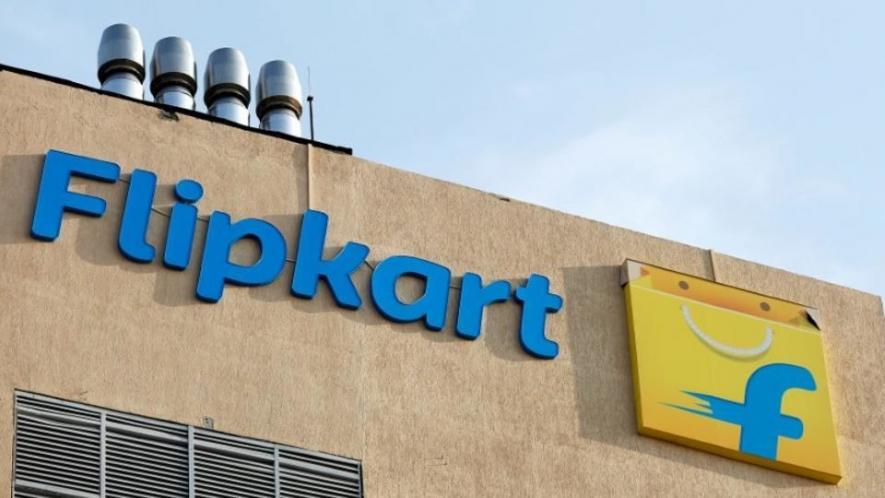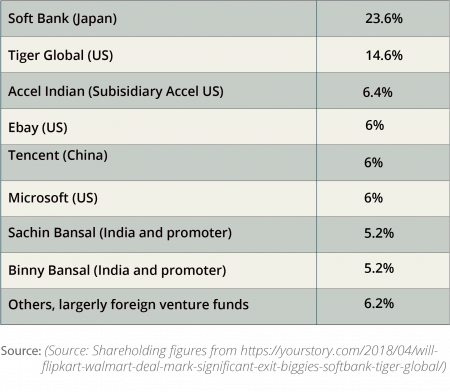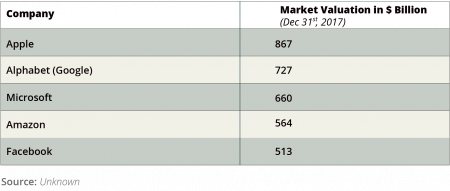Walmart’s Acquisition of Flipkart and What it Means for India

Walmart’s 14 billion dollar acquisition of Flipkart has sent the Indian financial press into a tizzy: the biggest deal in India ever, the biggest ever global e-commerce acquisition, etc. What it means for the Indian retailers, who employ about 40 million people, having Amazon and Walmart, two of the most brutal employers in the world dominating the Indian market, does not find place in these writings. Or that the BJP government has been in clear violation of its election promise of not permitting foreign capital to enter multi-brand retail. They are letting this happen under the guise of “ecommerce”. Amazon and Walmart, both global monopolies, will now completely dominate the retail sector in India.
Just to see the extent of the disaster that is waiting to happen in India, we need to only look at the number of people Flipkart, the biggest e-commerce platform in India, employs. It employs only 8,000 full-time employees and 20,000 part-time employees as against 40 million, mostly self-employed or employing family labour, in the India retail sector.
Indian capitalist class or its mouthpieces may be immune to the woes of the workers, either in their factories or at large. But will these 14 billion dollars flow into the Indian economy? The answer is no. Only about 2 billion dollars may come into the company, and therefore the Indian economy. The rest, about 12 billion dollars, will simply be the amount paid to the various shareholders directly – mostly venture capital –and will not enter the Indian economy. As the sale will take place in Singapore, India will not even be able to tax the bumper profits accruing to these venture funds from the sale of Flipkart shares. This is the consequence of the Supreme Court Judgement in the Vodafone case, which Pranab Mukherjee, as the Finance Minister in the UPA government had tried to rectify, but then Jaitley scuttled.
To see who are the big beneficiaries of the Flipkart sales, let us look at its current shareholdings. We give in the table below, the current shareholdings in Flipkart:

As can be seen from the above, about 90 per cent of the existing shareholdings are from what are called venture funds – in reality vulture funds – all of which are headquartered abroad. They will get huge windfall profits from Flipkart’s sale. Most of these companies are going to exit completely or will be acquired. The Indian economy will not see a cent from the sale of these shares.
Why do I call these funds vulture funds? The Softbank’s example will make this clear. They made 2.5 billion dollar investment in Flipkart only eight months back and is now set to make a $1.5 billion profits (60 per cent profits)!
This is the pattern of venture funds, make investments in struggling business which has real market value, and help sell it quickly, making huge profits.
After the sale of 77 per cent of its shares for 14 billion dollars, the market value of Flipkart is 20 billion dollars. How is it that a company that has been consistently making losses – cumulative losses of Rs. 24,000 crores or about 3.5 billion dollars in ten years – be worth 20 billion dollars?
In the digital ecosystem, or what is being called as the tech sector, it is not immediate profit that matters. What matters is building monopolies in specific segments of the market. Amazon took nine years before it made a profit. Google had no business model when it launched its search engine, and created a monopoly in the search engine market. It is only then that it hit upon the idea of using advertisements as its business model. It is the same model that Facebook also followed.
Venture capital, the latest avatar of finance capital, invests in companies that they think will create a monopoly. Once this monopoly is created, they know that this monopoly can be used to create super profits. It is the expectation of super profits, once the monopoly is created, that gives these tech firms or digital monopolies their market value. This is why the top five companies in the world today, as can be seen in the table below, are digital monopolies.

Since then, Facebook has gone down the eighth position, with the Chinese social media giant and venture fund Tencent rising to the fifth position.
BJP’s violation of its election manifesto on the issue of not allowing global multinationals to compete with Indian retailers is a repeat of its violation on all other fronts, be it farmers, workers or students. BJP has never been serious about not allowing foreign multi-brand retailers (FDI Rules) to enter the Indian market. It allowed Amazon, and after the acquisition by Flipkart by foreign venture capital, to operate freely in the Indian market. These are obviously multi-brand retailers. The fact remains that they sell through their websites or apps, and not through brick and mortar stores.
What is the fiction that the BJP and its finance minister crafted to bypass the regulations that Foreign Direct Investment (FDI) is not allowed in the Indian multi-brand retail market? An issue that the Retailers Association of India have raised repeatedly, including through a petition in the Delhi High Court.
BJP’s “answer” is that these ecommerce companies are not selling directly to customers but are only acting as a “meeting place” for buyers and sellers. The buying and selling apparently is not being done by Amazon or Flipkart. Even though we, as much as the Finance Ministry, know that this is just a figment of Finance Ministry’s imagination.
Mr. Jaitley, after his four-year stint as the Finance Minister, should start writing fiction. He seems to have perfected this art while dishing out fictional figures on employment, GDP growth, non-performing assets of banks etc.
One also needs to look at the labour practices of companies such as Amazon and Walmart. Both have been identified as the most abusive of employers. Amazon workplace is stated to be toxic by a number of employees who got burned due to extremely long work hours, abusive bosses as well as incidents of sexual harassment.
Walmart has a similar record, with its employees now starting to unionise, and going on strike for better working conditions. Walmart’s anti-union policies are notorious, and have made Walmart the worst company to work for in the US.
Both these companies pay below-subsistence wages to the bulk of its employees, reserving fat salaries for its top bosses and the technical team that run the websites; or (wo)man its technical infrastructure. The bulk of their US employees depend on food stamps and various other social security schemes to survive. The welfare schemes do not subsidise the workers, they, in fact, provide hidden subsidies to big capital. This is apart from various other benefits that the neoliberal governments are providing to big capital: from tax reductions to allowing money laundering through tax havens. Not surprisingly, the biggest beneficiaries of tax havens are the digital monopolies.
The BJP government’s policies are clones of the US policies that provide tax breaks for the rich, and offer casual employment for the working people. This is also why India’s business press and journalists are gaga over the Flipkart acquisition. For them, economic journalism means reporting on big capital and how great they are; or the equivalent of a page 3 or celebrity news of big business.
The duopoly of Amazon and Walmart in Indian retail market spells doom for lakhs of retailers who supply our everyday needs. Welcome to Modivision for India: the vision not for the Indian people, but for big capital, Indian or foreign. For the Indian nation and its people, his government has only hate to offer: against minorities, anti-nationals such as secularists, liberals and the left.
Get the latest reports & analysis with people's perspective on Protests, movements & deep analytical videos, discussions of the current affairs in your Telegram app. Subscribe to NewsClick's Telegram channel & get Real-Time updates on stories, as they get published on our website.
























